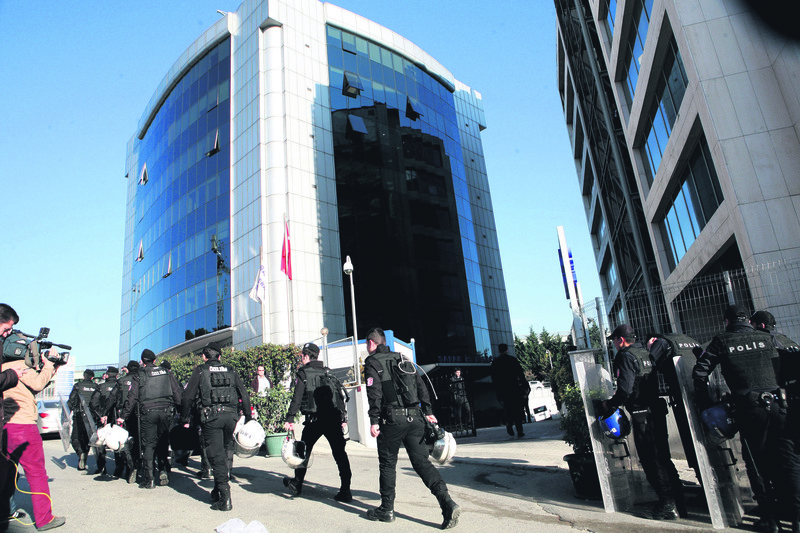Gülenists accused of massive data theft to track thousands

A police raid on the headquarters of a business conglomerate linked to the Gülen Movement revealed a server containing data of thousands of people, ranging from tax information to social security data stolen from national servers
A new finding may shed light on how members of the Gülen Movement, which is accused of terrorism, kept tabs on people it sought to blackmail or imprison through its infiltrators in the police and judiciary.A server discovered in a police raid of Kaynak Holding, a business conglomerate with close ties to the movement, contained personal information of thousands of people. Data found on the server, which was in a secret room in Kaynak headquarters in Istanbul, included social security, tax and land registry information of a large number of people, allegedly stolen from state-run agencies' servers.Kaynak (Source) Holding was at the heart of an investigation in November, and a court assigned trustees to administer the company, which is allegedly linked to the movement's members running the Gülenist Terror Organization (FETÖ)and "parallel structure."The server, which holds 300 terabytes of data, was discovered in a room accessible via a secret passage in the company's headquarters in Istanbul. Officials first thought the server was used to transfer data regarding company transactions abroad - namely to members of the Gülen Movement living abroad - but further inquiry revealed it does contains company information as well as a massive cache of data regarding thousands of people. The data was heavily encrypted, although experts managed to decrypt a small amount, and it is guessed that it contains private information about thousands of people in Turkey. Experts predict it would take at least one year to decrypt the entire contents of the server, but initial findings show the database has information about individuals from prosecutors and students to shopkeepers and housewives, pointing to evidence of a massive, Gülenist information network.The data was copied from state-run agencies' servers, and the experts said it was not clear for what purposes the data was used. Given the history of charges against Gülenists, who have been accused of illegal wiretapping and blackmail, they said the data was most likely used to blacklist people or force them to follow orders from Gülenists. Blacklisting is suspected of being used to install movement infiltrators in public agencies. Sources have claimed that Gülenists created an infiltration scheme and had detailed background information about people they chose to install in the bureaucracy, judiciary and police. Private information gives "a degree of reliability" for Gülenists concerning who they could trust when it comes to infiltration, according to experts.Having access to personal information also gives the upper hand to Gülenists in tracking people critical of the movement or who pose an obstacle to infiltration of state agencies. The movement was accused of organizing sham trials to imprison its critics in the past. Claims indicate that prosecutors linked to Gülenists conducted inquiries with forged evidence to imprison hundreds, including journalists to military officers. Several media reports say Gülenists also blackmailed people to help them either financially or ease access to key posts in state insititutions. Personal information could have been used to track them or their families.The Gülen Movement is already accused of wiretapping a large number of people, from the president and prime minister to top bureaucrats, through infiltrators in law enforcement and the judiciary, according to an investigation. Gülenists are believed to have gained considerable clout in Turkey through their infiltration scheme, which paved the way for their attempts to topple the government in 2013. In another investigation, police officers linked to the movement were found to be behind the illegal wiretapping of hundreds, ranging from journalists from Daily Sabah to prominent figures, including businesspeople, under the guise of an anti-terror investigation, from 2011 to 2013.
Last Update: December 27, 2015 19:15
